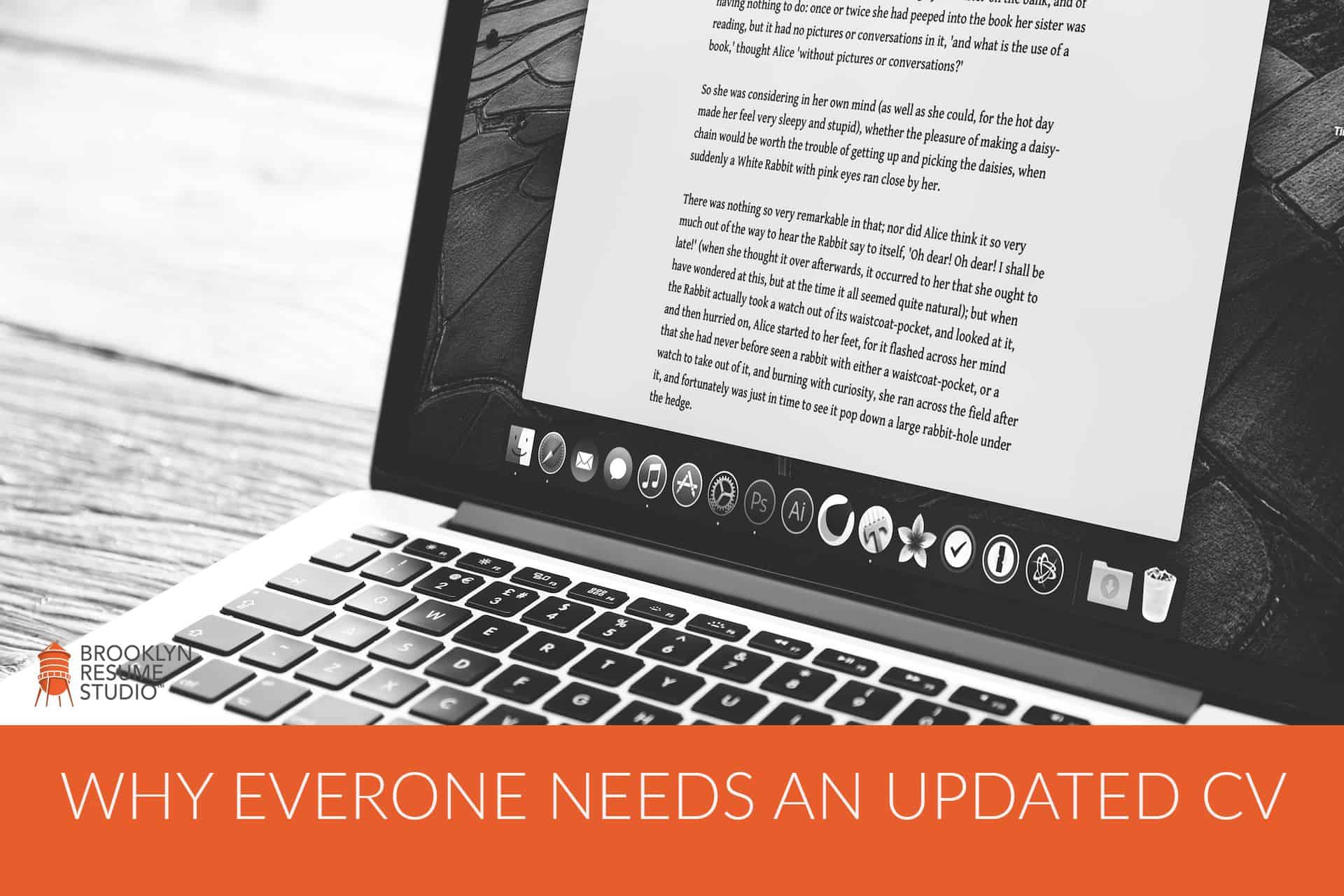
Many people think the resume is strictly a job search tool with the sole purpose of getting a candidate in the door for the job interview. But when I talk to my clients about the real value, it’s so much more than that.
Even if you’re not actively looking for a job, it’s important to keep your resume updated for a number of reasons. Don’t be the person who waits until the eleventh hour when the perfect opportunity presents itself, only to realize that you haven’t updated your resume in 5 years (or 10, or more). It happens more often than you think.
Being prepared for an unexpected job opportunity is one reason, but here are several other reasons why passive job seekers and gainfully employed folks STILL need to keep the resume, cover letter, and LinkedIn profile updated.
1) Increase Your Negotiating Power
Whether you’re presented with a job opportunity or looking for a boost in your current role, a solid resume that articulates your accomplishments and value will give you a leg up in negotiating a promotion, raise, or new assignment.
2) Position Yourself for Internal Opportunities
While you may not be looking at external roles, having an updated and optimized resume will put you at the front of the line should an amazing opportunity open up internally. Keep a running list of your wins, accomplishments, special projects, and any other way in which you’ve created value for your employer – and highlight promotions or title changes to highlight your mobility.
A word of advice? The longer you wait to update your resume, the more difficult it becomes to accurately recall your accomplishments. Jot down key metrics, outcomes, and success stories while they’re fresh in your mind. Keep a running list of projects you contributed to, and potential references you can tap should you need someone to verify your employment.
3) Boost Your Visibility and Reputation
In addition to functioning as a job search marketing tool, the resume can be effective in positioning you for outside opportunities, such as consulting work, freelance projects, or board appointments – all of which typically require an updated CV. Even if you don’t have time to fully update your documents, create a concise and high-level version that lists your employment history, education, and a couple of key takeaways for each of your roles. You can always refine and expand on your resume later.
4) Be Prepared for Unexpected Changes
This year proved that no organization is immune to financial distress and subsequent layoffs. Keeping your resume updated as you move through your career and your current role will ensure that you’re prepared to deal with unexpected situations, such as layoffs, furloughs, unfavorable leadership changes, or anything else that results in your unplanned termination.
After all, job searching is so often about timing, and being prepared will give you the ability to immediately seek out opportunities and minimize time between positions – which can impact your resume down the line.
Don’t wait until an opportunity presents itself to update your resume, cover letter, or your LinkedIn profile. Create a polished and impactful brand presence that accurately captures your most marketable experience and contributions. Contact us to learn more.
